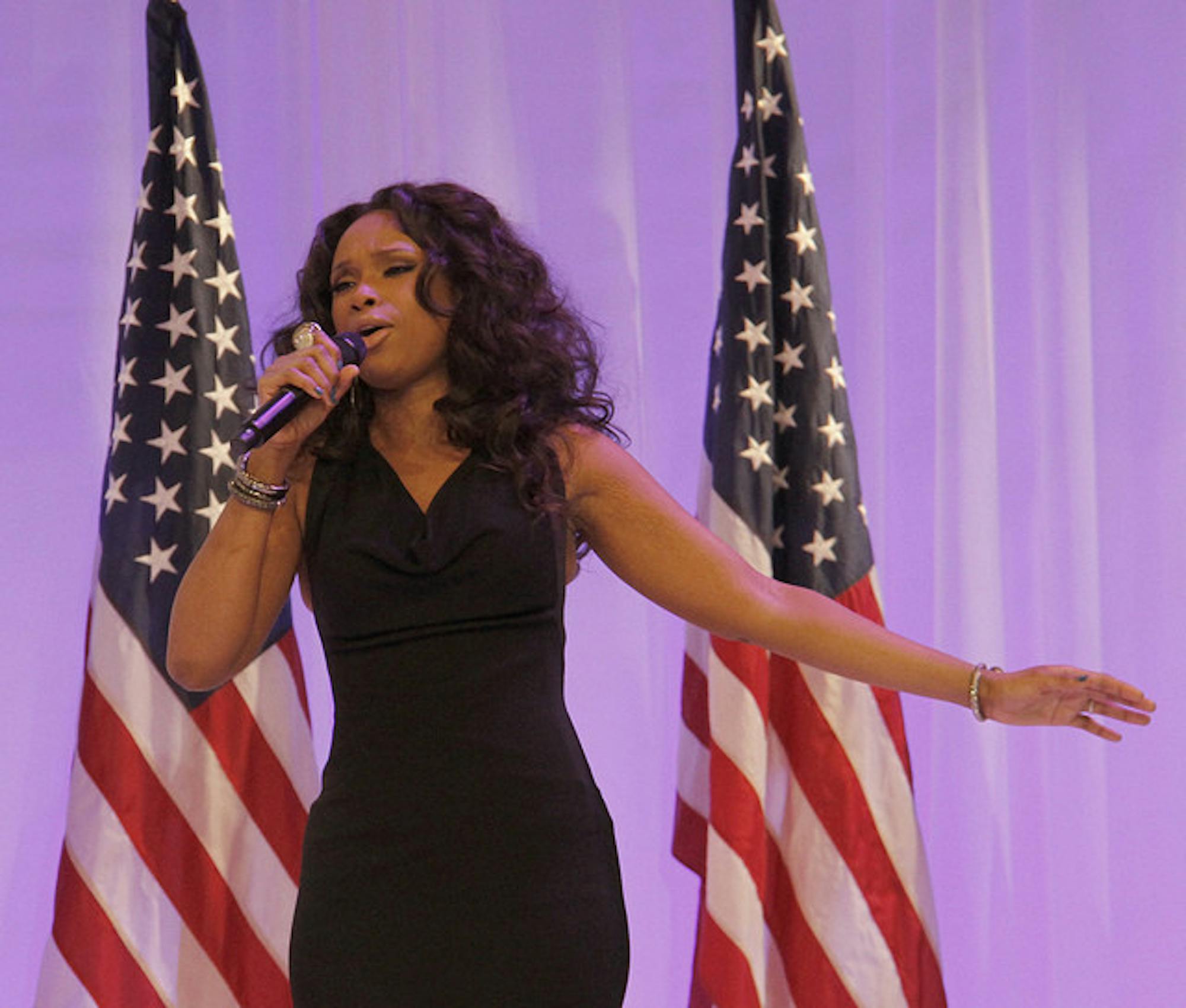While she has managed to stay out of the spotlight over the past few years, Jennifer Hudson has returned to the front of the music scene with the release of her third studio album, "JHUD,"on Sept. 23. Returning from a three-year break since her last album's drop, many expected Hudson to come back on a high note. Unfortunately, however, "JHUD" does not fully meet these expectations.
It's no secret that Jennifer Hudson is talented -- she has the pipes to prove it -- so in listening to her album, the standards are high. Listeners can focus on the album's cohesiveness and their enjoyment of each track instead of simply asking "Is this singer any good?" "JHUD" is stacked with big name features including R. Kelly, T.I. and Iggy Azalea. While some of these voices come as welcome additions to the album, other contributions leave the listener a bit confused.
For instance, "It's Your World" starts off with a strong, soulful and almost nostalgic feel from Hudson, a vibe which is completely thrown off by R. Kelly’s verse. In this case, R. Kelly offers very little to enhance the song, and his feature on the track includes a lot more riffs and “oohs” and “ahhs” than anything of substance. And when Iggy Azalea teams up with Hudson in "He Ain't Goin' Nowhere" -- an attempt to reinforce the “girl power” motif present throughout the album -- the result is similarly disappointing. Once again, Hudson introduces the track with powerful vocals, and just as the audience starts to get a feel for her direction Azalea comes in and sends listeners on a 180. As opposed to R. Kelly, Azalea's verse has a little more meat to it, but it just seems out of place with the rest of the song and even the album as a whole. The only feature that seems to do "JHUD" any justice is T.I.'s performance on "I Can't Describe (The Way I Feel)." T.I. and Hudson have admirable vocal chemistry, and the pair fit together seamlessly on this track.
A second problem with "JHUD" is Hudson's struggle throughout the album to identify a single genre for herself. Most of the tracks maintain a pop feel, with hints of soul. Album opener "Dangerous" and "Say It," which appears toward the end of the album, are good examples of this pop/soul blend. However, Hudson goes for a stronger R&B vibe in "Walk It Out," which includes Beyoncé-style sounds clips that once again, don’t seem to fit with the track. This trend is as confusing to the listener as it is annoying. Hudson takes yet another turn on "I Still Love You," introducing a disco flavor that is too antiquated to be considered pop. While none of these varying tracks are necessarily of low quality, they simply are not consistent with each other, leaving gaps that inhibit the listener from fully establishing a connection with the album.
Furthermore, while Hudson proved her ability to rattle off a ballad in her numerous film appearances, the slower songs on "JHUD" leave much to be desired. The lyrics in "Just That Type of Girl" might be interpreted as empowering -- “Me and my girls just came to party / it's that simple,” Hudson sings -- but the song's lyrics are not backed up with a solid beat. Even worse, the piano background sounds like elevator music, doing little to engage the audience.
Hudson closes out the album with "Moan," another slower song, reminiscent of Hudson’s days singing show tunes. Ballads are the perfect opportunity for Hudson to showcase her acclaimed pipes, and she just doesn’t rise to the occasion. The track in general ends the album on a disappointing note; "JHUD" might feel more satisfying if it featured an upbeat sendoff.
Despite some noticeable issues, the individual elements of "JHUD" are truly entertaining. Each track brings something new to the table, and on a song-by-song basis the album is a relatively pleasing glimpse into Hudson’s talent. Still, "JHUD" lacks unification -- there is no glue holding these tracks together -- making it hard for listeners to fully engage with the entirety of the album.
Jennifer Hudson's new album entertains, but lacks consistency

Jennifer Hudson's famous vocal skills can't save this unfocused album.





